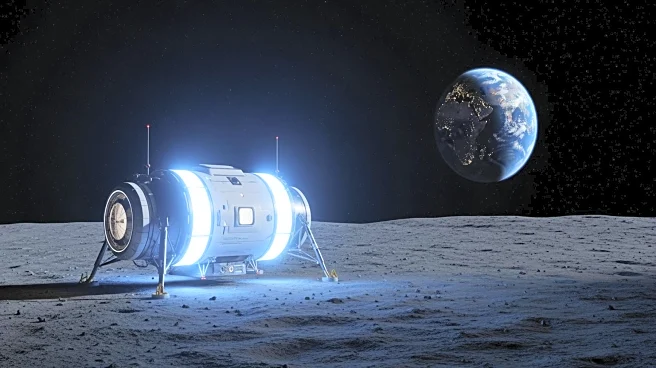What's Happening?
The head of the U.S. military's Central Command, Adm. Brad Cooper, held a significant meeting with Syria's interim President Ahmad al-Sharaa in Damascus. This rare engagement included discussions on political and military cooperation aimed at enhancing security and stability in Syria, which is recovering from a 14-year civil war. The talks also addressed the persistent threat posed by the Islamic State (IS) group and efforts to integrate Syrian armed groups into the national military. The U.S. maintains a military presence in eastern Syria as part of an international coalition to combat IS, which, despite its defeat in 2019, continues to carry out attacks through sleeper cells.
Why It's Important?
This meeting underscores the ongoing strategic interest of the U.S. in stabilizing Syria and the broader Middle East region. The discussions are crucial for reducing the threat of IS, which poses risks not only to regional stability but also to U.S. national security. The integration of Syrian armed groups into the government military could potentially lead to a more unified and effective force against IS. Additionally, the talks reflect a shift in U.S.-Syria relations, potentially paving the way for future diplomatic engagements. The outcome of these discussions could influence U.S. military and foreign policy in the region, impacting stakeholders such as the Syrian government, regional allies, and international partners involved in Middle Eastern security.
What's Next?
Negotiations between Syria and Israel are ongoing, with the aim of reaching a security agreement that could restore the status quo prior to the fall of former President Bashar Assad's government. This agreement is crucial for regional stability and could affect U.S. diplomatic and military strategies in the area. Additionally, Syria's relations with Russia and Iran, both of which were significant backers of Assad, are being recalibrated, which may influence future geopolitical dynamics in the region.
Beyond the Headlines
The meeting highlights the complex geopolitical landscape in Syria, where multiple international actors have vested interests. The U.S. engagement with Syria's interim leadership could signal a shift in alliances and influence in the region. The ongoing negotiations with Israel and the recalibration of relations with Russia and Iran may lead to new power dynamics, affecting long-term peace and stability in the Middle East.









